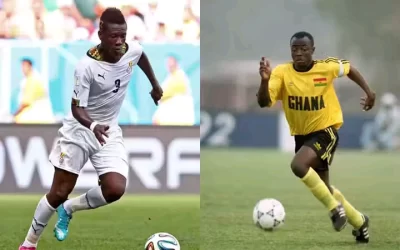As the Africa Cup of Nations (Afcon) unfolds in Côte d’Ivoire, Ghana, once a dominant force in African football, grapples with a 40-year Afcon title drought. In an interview with sports scientist Ernest Yeboah Acheampong, key issues hindering Ghana’s success on the continental stage are explored, shedding light on the factors contributing to the nation’s decline despite producing world-class players.
Ghana’s rich football history, marked by the likes of Abedi Pele, Samuel Kuffour, Sulley Muntari, Michael Essien, and Asamoah Gyan, saw the country clinch Afcon titles in 1963, 1965, 1978, and 1982. However, recent tournaments have witnessed suboptimal performances, with the 2015 finals appearance standing as the pinnacle.
Identified challenges include inadequate preparation, waning commitment levels among players, internal team politics, disputes over remuneration, and a decline in the quality of the local league. The absence of a robust youth football system, interference by the political elite, and allegations of player selection based on personal connections further compound the issues.
To revitalize Ghana’s football prowess, Acheampong suggests comprehensive changes. Establishing a solid grassroots structure aligned with FIFA’s developmental pyramid, appointing knowledgeable leaders, investing in football infrastructure, and capacitating coaches are crucial steps. Emulating successful models from countries like Senegal, Morocco, and Algeria, Ghana must prioritize talent selection based on merit and regular club participation.
Additionally, Acheampong emphasizes the importance of creating a comprehensive database of Ghanaian players, both domestically and abroad, to facilitate effective monitoring of their performance. Entrusting technocrats with roles in football administration based on their scientific knowledge and experience can further enhance the national team’s prospects.
Ultimately, adopting modern training and management methods is crucial in an era where football has become increasingly scientific. The proposed reforms aim to dismantle obstacles, wasteful practices, and undesirable influences that have impeded Ghana’s journey to reclaiming Afcon glory.





0 Comments